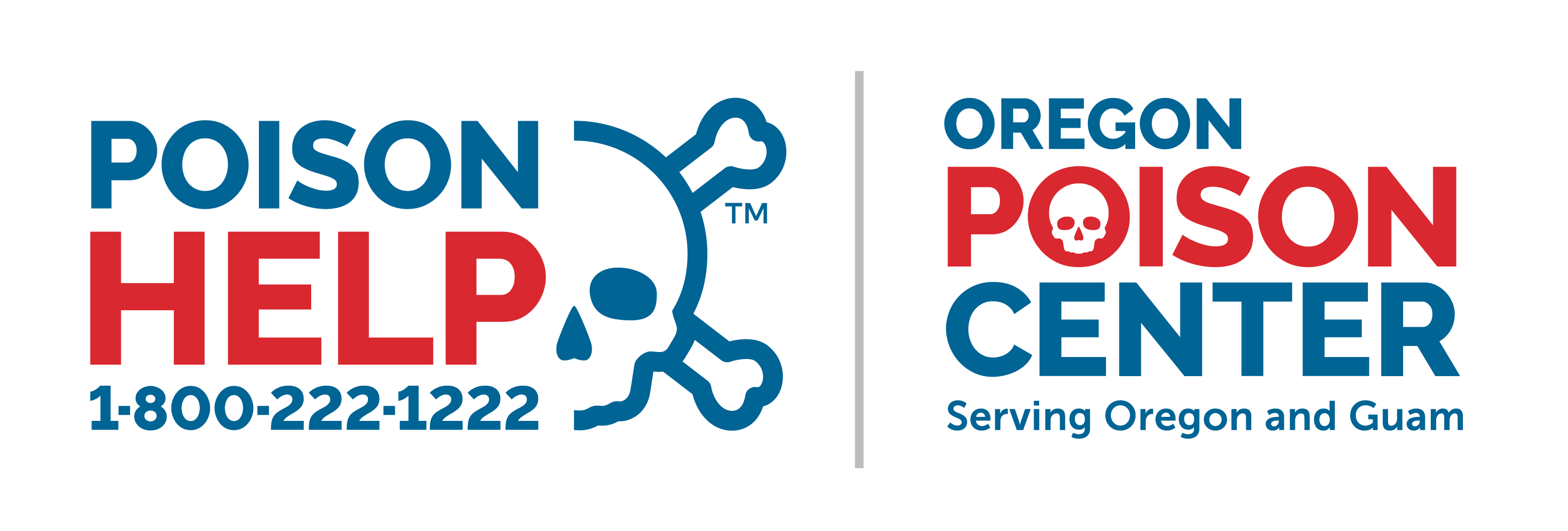
The Oregon Poison Center is a 24-hour health care information and treatment resource for poison emergencies serving Oregon and Guam. Our Mission is to prevent poisonings and to minimize adverse effects of exposures to drugs, poisons, chemicals and natural toxins. To guide effective utilization of health care resources by serving the public, health care providers and public health agencies, through telephone advice and consultation, educational outreach, research and emergency response planning.

Your Donation Supports our Work
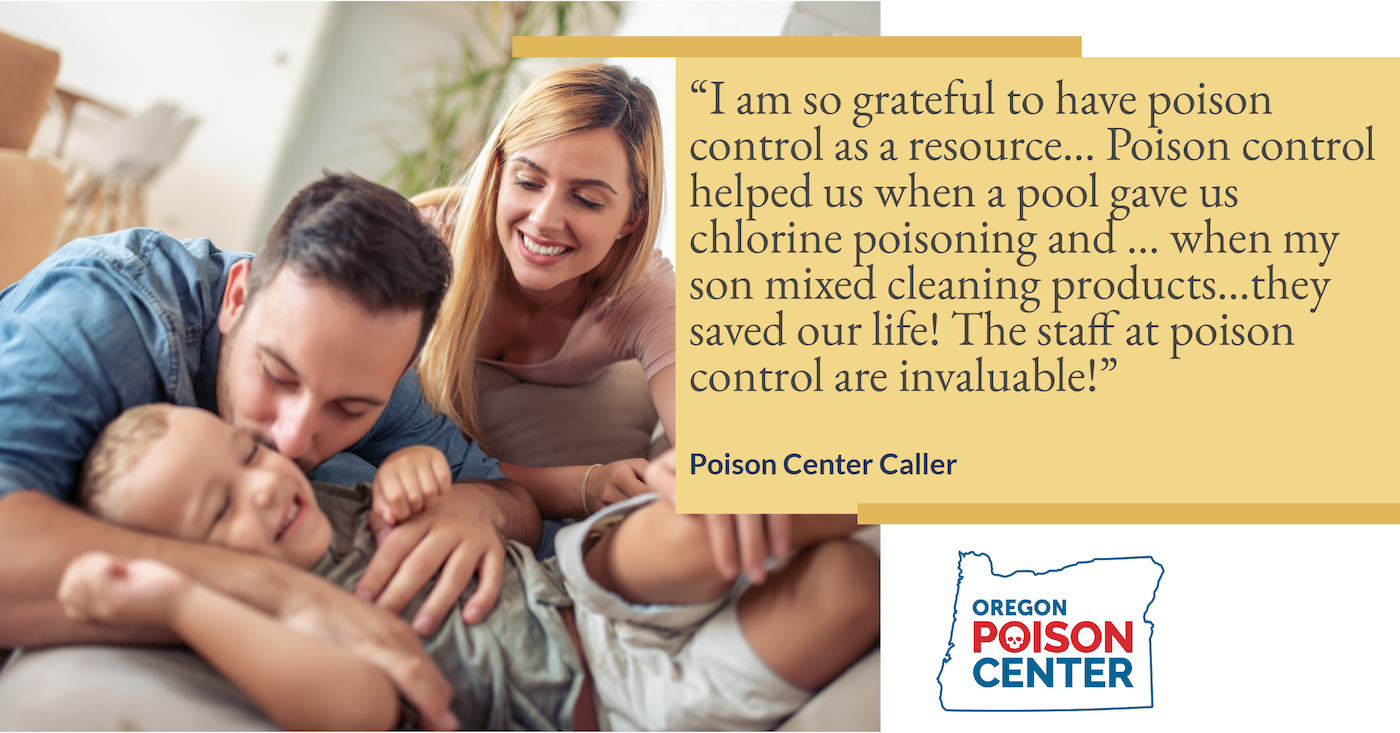
Poison Help Online

Social Media Links
Connect with us
AAPCC Accredited
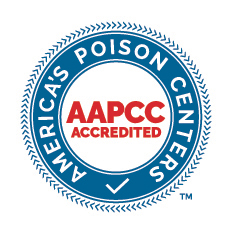
National Poison Prevention Week
Established by Congress in 1961 and celebrated the third week of March, National Poison Prevention Week (NPPW) serves to raise awareness about poison control centers, the Poison Help line (1-800-222-1222) and educate the public about how to prevent poisonings. Along with the nation’s 53 poison centers, the Oregon Poison Center will celebrate the 65th annual NPPW, March 15 - 21.
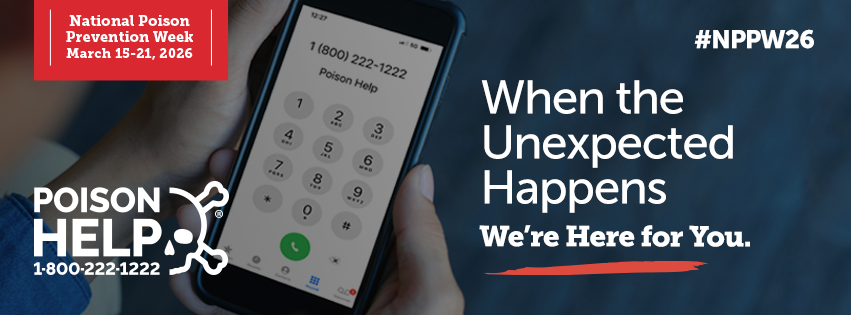
Resources and Information
NPPW Partner Toolkit, Shareable Resources: Join us in educating the public about the life-saving services provided by poison control centers during this year’s celebration. Download the 2026 NPPW Partner Toolkit for daily guidance, social media content and graphics in both English and Spanish we've prepared for your use.
Follow us on social media (Facebook, Instagram) for more information, interactive content and other poison prevention resources throughout NPPW.
NPPW Healthcare Provider Lecture, 3/16/26
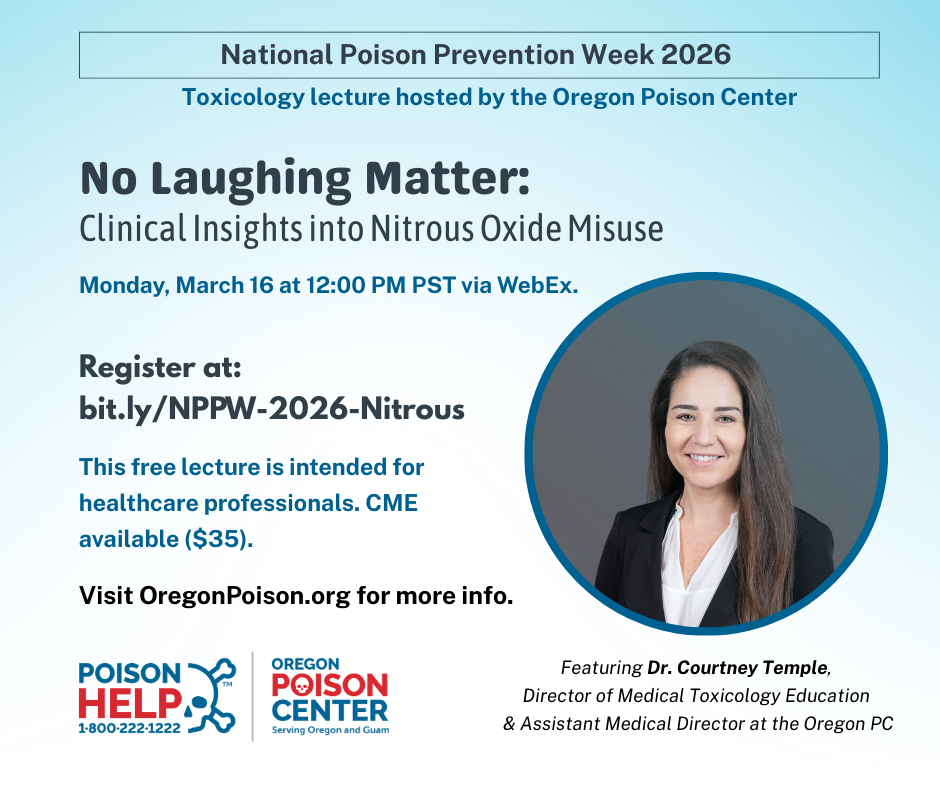
No Laughing Matter: Clinical Insights into Nitrous Oxide Misuse
Monday, March 16, 2026 at 12:00 PM PST via WebEx
Register for the event | Download Event Flyer
This free lecture is intended for healthcare professionals. CME available ($35) - instructions for claiming CME will be provided at the conclusion of the presentation.
After attending this lecture, learners will be able to:
1. Identify emerging trends in recreational nitrous oxide use and recognize its relevance in general medical practice
2. Describe the common clinical presentations of nitrous oxide toxicity, including neurologic, psychiatric, and hematologic findings
3. Outline a practical diagnostic and treatment approach to suspected nitrous oxide toxicity
Accreditation: The School of Medicine, Oregon Health & Science University (OHSU), is accredited by the Accreditation Council for Continuing Medical Education (ACCME) to provide continuing medical education for physicians.
Credit: Oregon Health & Science University School of Medicine designates this live activity for a maximum of 1.0 AMA PRA Category 1 Credits™. Physicians should claim only the credit commensurate with the extent of their participation in the activity.